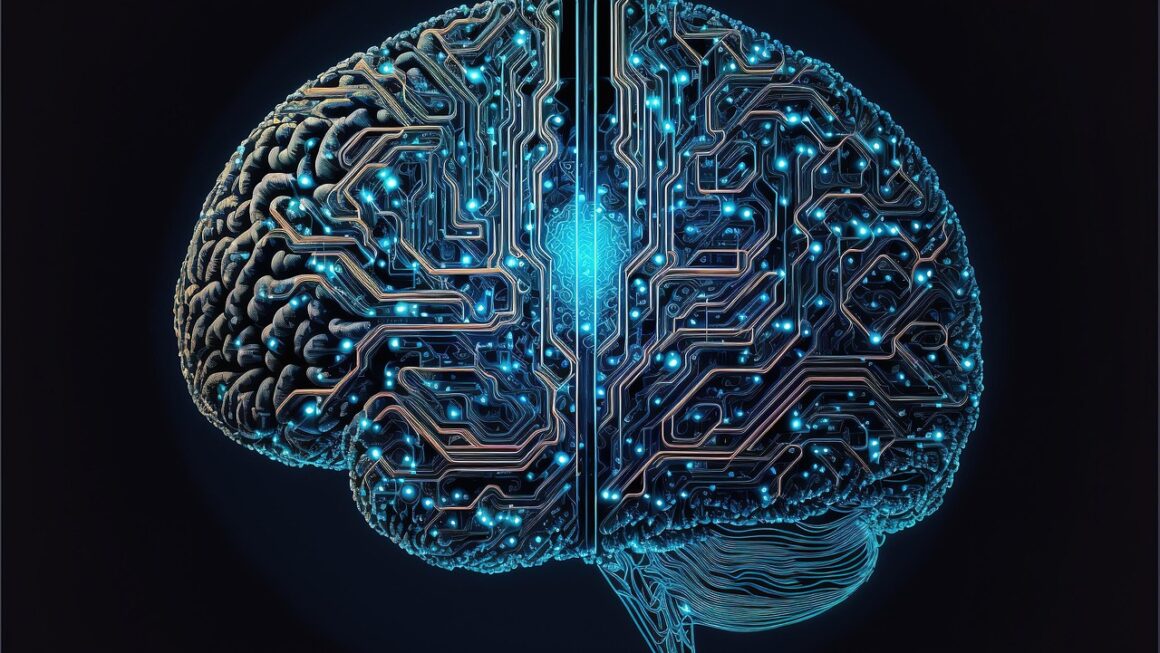The healthcare landscape is rapidly evolving, and at the forefront of this transformation is artificial intelligence (AI). From diagnosing diseases to personalizing treatment plans, AI is revolutionizing how healthcare is delivered and experienced. This technology holds immense promise for improving patient outcomes, reducing costs, and streamlining operations. In this comprehensive guide, we’ll explore the various applications of AI in healthcare, delve into the benefits and challenges, and discuss the future of this transformative technology.
AI-Powered Diagnostics and Imaging
Enhanced Image Analysis
AI algorithms are excelling at analyzing medical images, such as X-rays, MRIs, and CT scans, with remarkable speed and accuracy. These systems can identify subtle anomalies that might be missed by the human eye, leading to earlier and more accurate diagnoses.
For more details, visit Wikipedia.
- Example: AI-powered software can detect early signs of lung cancer in CT scans, potentially saving lives through timely intervention. A study published in Nature Medicine showed that an AI system outperformed radiologists in detecting lung cancer in screening CT scans.
- Benefits:
- Improved accuracy in detecting diseases.
- Reduced diagnostic errors.
- Faster turnaround times for results.
Disease Prediction and Risk Assessment
AI algorithms can analyze vast amounts of patient data, including medical history, genetic information, and lifestyle factors, to predict the likelihood of developing certain diseases. This allows healthcare providers to implement preventive measures and personalized interventions.
- Example: AI models can predict the risk of heart disease based on various factors like age, blood pressure, cholesterol levels, and family history, enabling proactive management and lifestyle changes.
- Actionable Takeaway: Healthcare providers can leverage AI-driven risk assessments to identify high-risk patients and implement targeted preventive strategies, such as personalized diet and exercise plans.
AI in Personalized Medicine
Tailored Treatment Plans
Personalized medicine involves customizing treatment plans based on an individual’s unique genetic makeup, lifestyle, and medical history. AI plays a crucial role in analyzing this complex data and identifying the most effective treatment options.
- Example: In oncology, AI algorithms can analyze tumor DNA to identify specific genetic mutations and recommend targeted therapies that are more likely to be effective. This is particularly useful in treating complex cancers where standard treatments may not be sufficient.
- Benefits:
- Increased treatment efficacy.
- Reduced side effects.
- Improved patient outcomes.
Drug Discovery and Development
The process of discovering and developing new drugs is lengthy and expensive. AI is accelerating this process by analyzing vast amounts of data to identify potential drug candidates, predict their efficacy, and optimize their design.
- Example: AI algorithms can analyze the structure and properties of millions of compounds to identify those that are most likely to bind to a specific drug target. This can significantly reduce the time and cost of drug discovery. Companies like Atomwise are using AI to accelerate drug discovery for various diseases.
- Key Points:
- AI reduces the time and cost of drug development.
- It helps identify promising drug candidates more efficiently.
AI-Powered Robotic Surgery and Assistance
Enhanced Surgical Precision
Robotic surgery, guided by AI algorithms, allows surgeons to perform complex procedures with greater precision, dexterity, and control. AI can enhance the surgeon’s capabilities by providing real-time feedback and guidance, reducing the risk of errors.
- Example: The da Vinci Surgical System is a widely used robotic surgery platform that allows surgeons to perform minimally invasive procedures with enhanced precision. AI can be integrated into these systems to provide real-time image guidance and decision support.
- Benefits:
- Smaller incisions and reduced scarring.
- Shorter hospital stays.
- Faster recovery times.
Automated Tasks and Support
AI-powered robots can also assist healthcare professionals with routine tasks, such as dispensing medications, transporting supplies, and monitoring patients. This frees up valuable time for clinicians to focus on more complex and critical tasks.
- Example: Hospitals are increasingly using robots to deliver medications and supplies to nurses, reducing the time they spend on these tasks. Aethon’s TUG robots are used in many hospitals for this purpose.
- Actionable Takeaway: Hospitals can implement AI-powered robots to automate routine tasks, improving efficiency and allowing healthcare professionals to focus on patient care.
AI for Healthcare Administration and Efficiency
Streamlined Operations
AI can optimize various administrative tasks in healthcare, such as appointment scheduling, billing, and claims processing, reducing costs and improving efficiency.
- Example: AI-powered chatbots can handle patient inquiries and schedule appointments, freeing up staff to focus on more complex tasks. Companies like Ada Health offer AI-driven symptom checkers and virtual assistants.
- Benefits:
- Reduced administrative costs.
- Improved patient satisfaction.
- Faster claims processing.
Data Analysis and Reporting
AI algorithms can analyze large datasets to identify trends, patterns, and insights that can inform decision-making and improve healthcare outcomes. This includes tracking disease outbreaks, monitoring patient populations, and evaluating the effectiveness of treatments.
- Example: AI can be used to analyze hospital data to identify areas where resources can be allocated more efficiently, such as reducing wait times in the emergency room.
- Key Points:
- AI helps identify trends and patterns in healthcare data.
- It supports data-driven decision-making.
Conclusion
AI is poised to transform healthcare in profound ways, from improving diagnostics and personalizing treatment to streamlining operations and enhancing efficiency. While challenges such as data privacy, algorithmic bias, and regulatory hurdles remain, the potential benefits of AI in healthcare are undeniable. As AI technology continues to advance, healthcare providers, researchers, and policymakers must work together to ensure that it is used responsibly and ethically to improve the health and well-being of individuals and communities worldwide. By embracing the power of AI, we can pave the way for a future where healthcare is more precise, personalized, and accessible to all.
Read our previous article: Zk Rollups: Privacy And Scalability Converge




